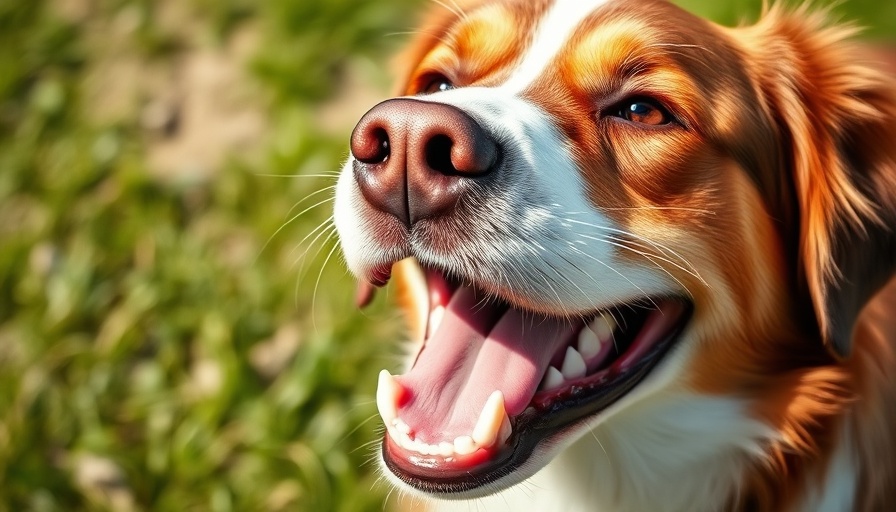
Understanding Your Dog's Teeth Chattering
Have you ever watched your dog excitedly chattering her teeth and wondered what it means? Dogs can exhibit this behavior for a variety of reasons, from the mundane to the medical. Understanding the underlying causes can help you respond appropriately. Teeth chattering can indeed be cute, but it also warrants attention depending on the context.
Temperature and Excitement: Common Causes
Just as we might shiver when we feel cold, dogs may chatter their teeth as a way of keeping warm. If your furry friend is outside in chilly weather and begins to chatter, it could simply be a bodily response to the temperature. Similarly, dogs often express their excitement through this behavior. When anticipating a treat or engaging in play, their joy may manifest in a delightful chattering of teeth.
When Teeth Chattering Signals a Problem
However, it’s essential to differentiate between playful teeth chattering and that associated with potential health problems. According to veterinarians, chronic teeth chattering can indicate oral discomfort, such as dental pain, periodontal disease, or other oral health issues. If your dog's teeth chattering is accompanied by symptoms like bad breath, excessive drooling, or trouble eating, it’s crucial to consult with your vet.
The Emotional Connection: Stress and Anxiety
Interestingly, many dogs reveal their emotional states through teeth chattering. Just as some humans might grind their teeth when anxious, dogs may do the same. If your dog starts chattering her teeth during a stressful situation—like a visit to the vet or during a thunderstorm—this behavior may serve as a self-soothing mechanism. Recognizing the context of the chattering can help you provide your dog with the comfort she needs.
Medications and Neurological Factors
In some instances, medications or neurological issues can lead to teeth chattering. If your dog is undergoing treatment for anxiety and begins to chatter her teeth, it might be a side effect of her medications. Additionally, conditions such as seizures may present through this behavior, often seen alongside odd bodily movements or a lack of response to stimuli. Observing, documenting, and discussing any such changes with your veterinarian will aid in an accurate diagnosis.
Breed Predispositions and Individual Differences
Certain breeds may be more susceptible to conditions that lead to teeth chattering. Small breeds like Yorkshire Terriers and Dachshunds are particularly prone to dental issues, hence displaying this behavior more frequently. Conversely, dogs like Greyhounds may chatter due to their sensitive nature, often responding with anxiety or excitement to stimuli. Being aware of these breed-specific tendencies can help owners better monitor their pets’ health.
Practical Tips for Addressing Teeth Chattering
If you notice teeth chattering without an obvious cause, it’s a good idea to consult your vet. Preventive measures, such as regular dental check-ups and appropriate oral care, can help stave off potential health issues. Additionally, for dogs that chatter out of anxiety, creating a calm environment and using techniques like positive reinforcement can be effective. Products designed to soothe anxious pets, such as pheromone diffusers or calming wraps, can also help reduce stress-related chattering.
Conclusion: Your Role in Better Canine Health
Understanding why your dog chatters her teeth is important for her overall well-being. Whether the behavior is a cute expression of excitement or a sign of something more serious, being informed allows dog owners to respond appropriately. Ensure to monitor your dog for signs of discomfort, and maintain regular visits to the vet for optimal dental health. By being proactive, you contribute significantly to your furry friend's happiness and health.
 Add Row
Add Row  Add
Add 




 Add Row
Add Row  Add
Add 

Write A Comment